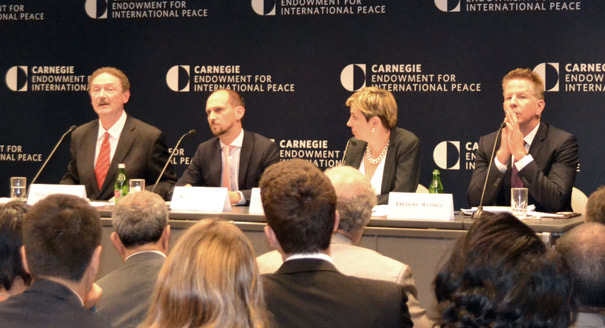Registration
You will receive an email confirming your registration.
Nearly three years after the fall of Muammar Qaddafi, Libya is in the throes of a bitter civil war. Its political and security institutions are split along complex fault lines that defy easy categorization. Further complicating the matter, Libya has become a flashpoint for a larger, regional proxy conflict between supporters of Islamist-oriented factions and the patrons of their opponents.
Frederic Wehrey presented the findings of a new Carnegie paper on the institutional roots of Libya’s violence and present options for how the United States and the international community can assist. Wolfram Lacher, Faraj Najem, and Dirk Vandewalle acted as discussants and share their own insights. Michele Dunne moderated.
Frederic Wehrey
Frederic Wehrey is a senior associate in the Middle East Program at the Carnegie Endowment for International Peace focusing on Libya and the Persian Gulf.
Wolfram Lacher
Wolfram Lacher is an associate in the Middle East and Africa research division at the German Institute for International and Security Affairs (SWP).
Faraj Najem
Faraj Najem is a professor at University of Benghazi and author of Tribes, Islam and State in Libya. He currently advises the Libyan prime minister’s office in Benghazi.
Dirk Vandewalle
Dirk Vandewalle is a professor of Government at Dartmouth College and currently the Carter Center’s field office director in Libya. He is the author of Libya Since Independence and A Modern History of Libya.
Michele Dunne
Michele Dunne is a senior associate in Carnegie’s Middle East Program, where her research focuses on political and economic change in Arab countries, particularly Egypt, as well as U.S. policy in the Middle East.
